Which Farming Is Most Profitable In Nigeria
Which Farming Is Most Profitable In Nigeria

Which Farming Is Most Profitable In Nigeria
Farming is a major source of income in Nigeria, and it’s important to know which farming activities can be the most profitable. With so many different options available, it can be difficult to decide which one will give you the best return on your investment. In this article, we’ll take a look at which type of farming is most profitable in Nigeria – from crop cultivation to animal husbandry – and how you can make sure that your efforts yield positive results.
The country has abundant land suitable for agricultural production, making it an attractive option for farmers looking to maximize their profits. However, there are some challenges associated with farming in Nigeria: unpredictable weather conditions, inadequate infrastructure, and limited resources all play roles in determining success or failure. Despite these challenges, Nigerian farmers have found ways to turn their hard work into rewards by taking advantage of certain types of farming practices that have proven successful over time.
Whether you’re interested in getting started as a farmer or already own a farm but want better returns on your investments, this article will provide valuable insights into which farming methods are most likely to bring home the biggest financial gains. Read on to learn more about what makes certain types of farming so lucrative in Nigeria!
-
Gel fertilizer With Urea₦11,000.00Rated 5.00 out of 5 based on 5 customer ratings
-
BOOSTRACT₦4,000.00Rated 5.00 out of 5 based on 5 customer ratings
-
LONG RAIN BOOT (BLACK)₦10,000.00Rated 5.00 out of 5 based on 1 customer rating
-
HAND GLOVE BLACK₦3,990.00Rated 5.00 out of 5 based on 1 customer rating
-
hat for farmers₦2,000.00Rated 5.00 out of 5 based on 1 customer rating
-
Draminski GMM Mini (Grain Moisture Meter)₦782,399.00Rated 4.90 out of 5 based on 10 customer ratings
-
Electric Motor (2HP | For Driving Machines)₦273,000.00Rated 4.89 out of 5 based on 9 customer ratings
-
AGRIFUL FERTILIZER₦13,000.00Rated 4.86 out of 5 based on 7 customer ratings
-
Agrident AWR 300 Stick Reader (For Reading RFID Ear Tags)₦1,596,250.00Rated 4.80 out of 5 based on 10 customer ratings
Types Of Farming In Nigeria
Agriculture is one of the most important economic activities in Nigeria and it plays a major role in providing food security for its citizens. There are various types of farming that can be undertaken within this country, each with its own unique benefits and drawbacks. In this article, we will take a look at some of these different farming methods to help you decide which may be best suited to your needs.
The first type of farming found in Nigeria is subsistence farming, which involves growing crops solely for consumption by those who produce them. This form of agriculture has been practiced extensively since ancient times and still remains an important part of life in many rural areas today. Subsistence farmers typically rely on traditional techniques such as crop rotation, composting and intercropping to increase yields without needing sophisticated inputs or expensive machinery.
Another popular method used in Nigerian agriculture is commercial farming, where products are grown primarily for sale rather than for personal use. Commercial farms tend to require more capital investment than subsistence operations but offer higher returns if managed properly. These farms often employ modern technology such as mechanization, irrigation systems and chemical fertilizers to maximize production efficiency while maintaining the quality standards required by buyers.
These two forms of farming provide the foundation upon which other agricultural activities are built; however there are several other options available that cater to specific market niches or regional climates such as aquaculture, animal husbandry and forestry management. Each activity carries its own set of risks and rewards so careful consideration should be taken when deciding which option offers the most potential benefit before committing resources or time into any particular venture. Knowing what factors play into making a profitable farming system is key to success in the industry.
Factors To Consider When Choosing A Profitable Farming Activity
When choosing a profitable farming activity in Nigeria, there are many factors to consider. It’s important to think about the climate and soil of your chosen area, as well as the resources you have available for investment. Additionally, it’s beneficial to understand how much time and effort is required for each type of farming before making a decision. Here are some key points to keep in mind:
1) Climate – Different crops will flourish depending on the local weather conditions. For example, maize grows best during hot seasons while yams can be harvested all year round with minimal maintenance.
2) Soil quality – Crops need different levels of nutrients from the soil so understanding what soils are present in your region is essential. You should find out if any fertilizers or amendments such as compost or manure need to be added regularly to ensure healthy yields.
3) Resources – Consider what resources you have access to when deciding which type of farming you want to pursue. Do you have enough capital to invest? Can you buy supplies locally? Are there labor costs associated with certain types of farming? These questions must be answered before starting your venture.
4) Time commitment – All types of agriculture require hard work but some may take more dedication than others; for instance, animal husbandry needs daily attention whereas planting trees only requires occasional upkeep once they’re established. Make sure that whatever kind of farming you choose fits into your lifestyle and schedule accordingly.
It’s clear that these factors play an important role when selecting a successful agricultural activity in Nigeria. With this information at hand, farmers can make informed decisions based on their particular circumstances and maximize profits from their endeavors moving forward.
Tips For Maximizing Profits From Farming In Nigeria
Farming in Nigeria can be a great way to make money, but it’s important to know the right steps for maximizing profits. Here are some tips that could help you get the most out of your farming venture in this West African country.
Firstly, choose a crop or livestock that is best suited to the local climate and soil conditions. This will ensure maximum yields with minimum effort. Also consider what kind of resources such as water, fertilizers, and labor are available nearby. Doing research on which crops tend to do well in different regions can go a long way toward ensuring success when it comes time to harvest.
Next, focus on quality control measures like pest management and proper storage facilities to protect from spoilage. Investing in tools like irrigation systems and greenhouses may also be necessary depending on where you are located and what type of crop you plan to cultivate. Keeping track of expenses related to production costs will help keep your business profitable by helping you identify areas where savings can be made.
To maximize returns from sales, knowledge about markets is key – understand who your customers are and how much they’re willing to pay for your product so you don’t end up selling at discounted rates just because there’s too much supply and not enough demand (a real buzzkill!). Utilizing digital marketing techniques like creating an online presence through social media platforms or website creation to increase reach is another great idea. After all, if no one knows about what you have to offer then it won’t matter how good the product is!
So there you have it – taking into account factors such as climate and resource availability while using strategies such as investing in quality control measures and making use of digital marketing tools should put any Nigerian farmer on their way towards achieving financial success. All that remains now is for them to take action!
Frequently Asked Questions
How Much Capital Is Required To Start A Profitable Farming Activity In Nigeria?
Farming in Nigeria is a great way to make a living, but it does require some capital up front. For those looking for the most profitable farming activities, understanding how much money is needed to start can help them determine which activities are best suited for their situation.
The imagery of lush green fields and bushels of fresh produce may come to mind when thinking about profitable farming practices in Nigeria. But beyond this idyllic vision lies hard work, dedication and investment – all of which come at a cost. Aspiring Nigerian farmers must understand that there will be an initial financial outlay if they hope to enjoy success down the line.
The amount of capital required depends on many factors including the scale of operations and type of crop grown or livestock reared. A large-scale farm growing maize or sorghum would need more funds than one focused on poultry production, for example. Generally speaking, however, starting costs range from between NGN 50,000 ($133) to NGN 1 million ($2,660). Of course, these figures represent just an estimate as actual amounts could vary greatly depending upon individual circumstances.
Regardless of the activity chosen, access to finance remains one of the biggest barriers to entry into farming in Nigeria today; having a sufficient budget is essential before taking the plunge into agricultural operations here. With careful planning and research around potential income streams though, aspiring entrepreneurs can find themselves well rewarded for their efforts by investing wisely in successful farming ventures across the country.
Is It Possible To Make A Living Off Of Farming In Nigeria?
Have you ever wondered if it’s possible to make a living off of farming in Nigeria? Farming has been an important part of Nigerian culture and livelihoods for centuries, but can farmers really make enough money to support themselves and their families today? This is a critical question that needs to be answered.
In order to answer this question, we must first understand what types of farming are most profitable in Nigeria. It is well known that the three most lucrative crops grown in Nigeria are cassava, maize, and rice. Cassava is widely grown throughout the country because it has many uses from food production to industrial applications. Maize is also popular due to its versatility as an animal feed or processed into flour. Lastly, rice has become increasingly more profitable as demand for staple grains increases both domestically and abroad.
These crops require different levels of capital investment depending on the scale of production and the type of technologies used. However, with careful planning and management along with necessary agricultural inputs like fertilizers and irrigation systems, farmers can realize significant returns even at small scales. Additionally, there are other sources of income such as livestock rearing which may provide additional financial support when coupled with crop cultivation activities.
It is clear then that while success depends largely upon individual efforts towards efficient production techniques and adequate market access, it certainly IS possible to make a living off of farming in Nigeria. With dedication and hard work, anyone can create a secure future through agribusiness regardless of their starting point or resources available.
Are There Any Government Subsidies Available For Farmers In Nigeria?
Agriculture is a key component of the Nigerian economy. With its vast land and favorable weather, it has the potential to provide livelihoods for many people in Nigeria. But are there any government subsidies available for farmers in Nigeria? This question needs to be answered to help determine which farming is most profitable in Nigeria.
The answer to this dilemma lies with the Federal Government’s Agricultural Promotion Policy (APP). The APP was created in 2017 as part of the Economic Recovery and Growth Plan, designed to boost agricultural productivity across the country. Under the policy, various incentives have been provided by both federal and state governments, ranging from access to credit facilities, tax exemptions and special grants. These incentives are aimed at encouraging more Nigerians to take up farming as a profession and make it more financially viable.
In addition, initiatives such as Project “Grow What You Eat & Eat What You Grow” have also been set up by non-governmental organizations like ActionAid Nigeria, providing training and other resources that empower smallholder farmers with valuable knowledge on how best to market their products locally or internationally. Such programs can go a long way toward making farming a more lucrative career choice for those looking for alternative sources of income outside of typical employment opportunities.
With these avenues open to them, it’s clear that farmers in Nigeria can benefit greatly from government subsidies when they look into different options carefully. Through such measures, farmers may find that growing crops could become one of the most profitable ventures in the country today.
Conclusion
In conclusion, farming in Nigeria can be a very profitable endeavor. However, when deciding which activity to pursue, it is important to consider factors such as the climate, soil type and local market conditions. Additionally, following tips like selecting high-value crops and taking advantage of government incentives will help maximize profits from your investment.
Though some may feel that farming requires too much effort or resources for them to benefit financially, with enough research and planning you can make sure your venture yields successful results. With all these elements in place, Nigerian farmers have plenty of opportunities available to them – so don’t hesitate to get started!

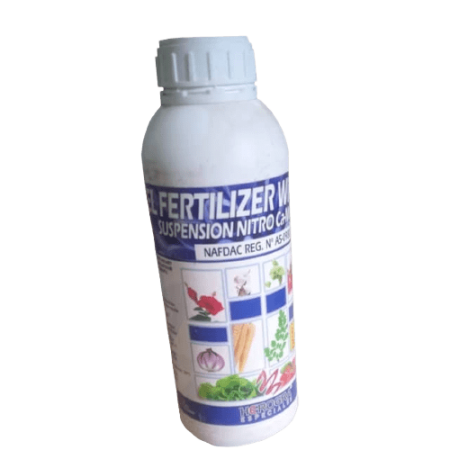
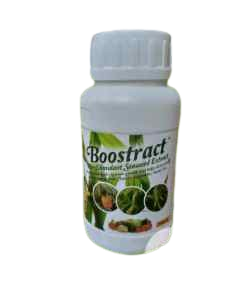





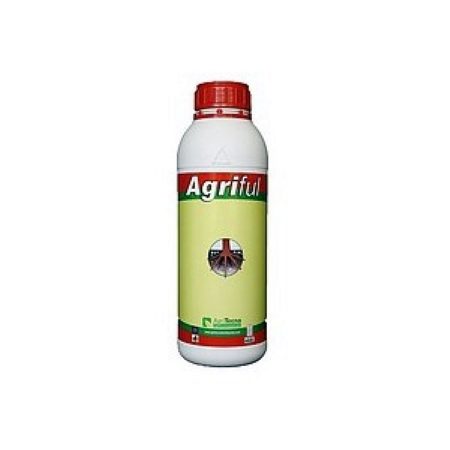
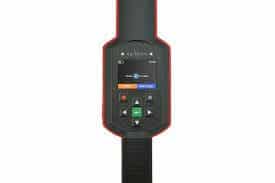



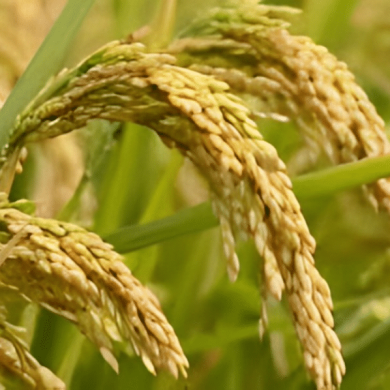

Add comment
You must be logged in to post a comment.